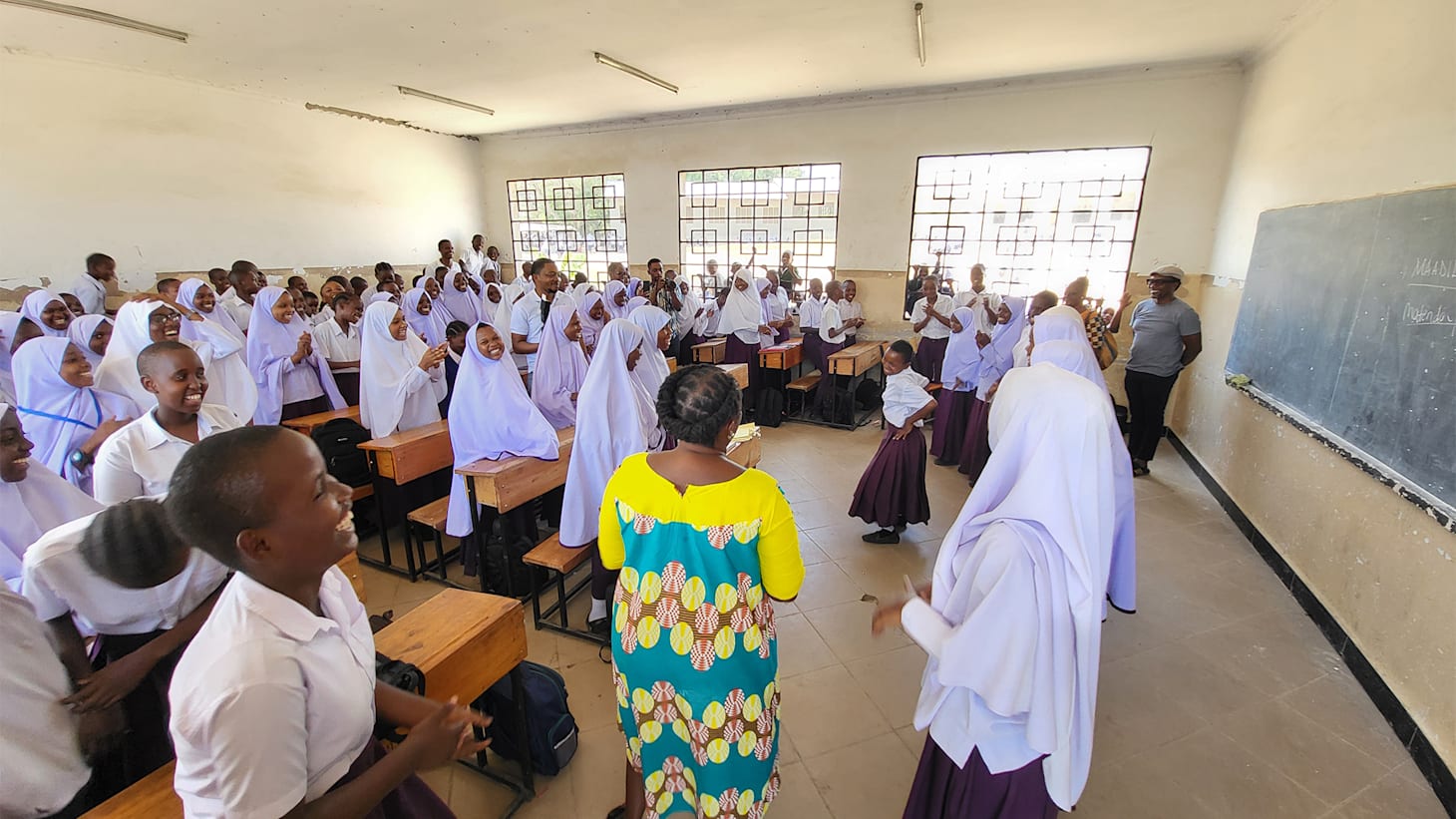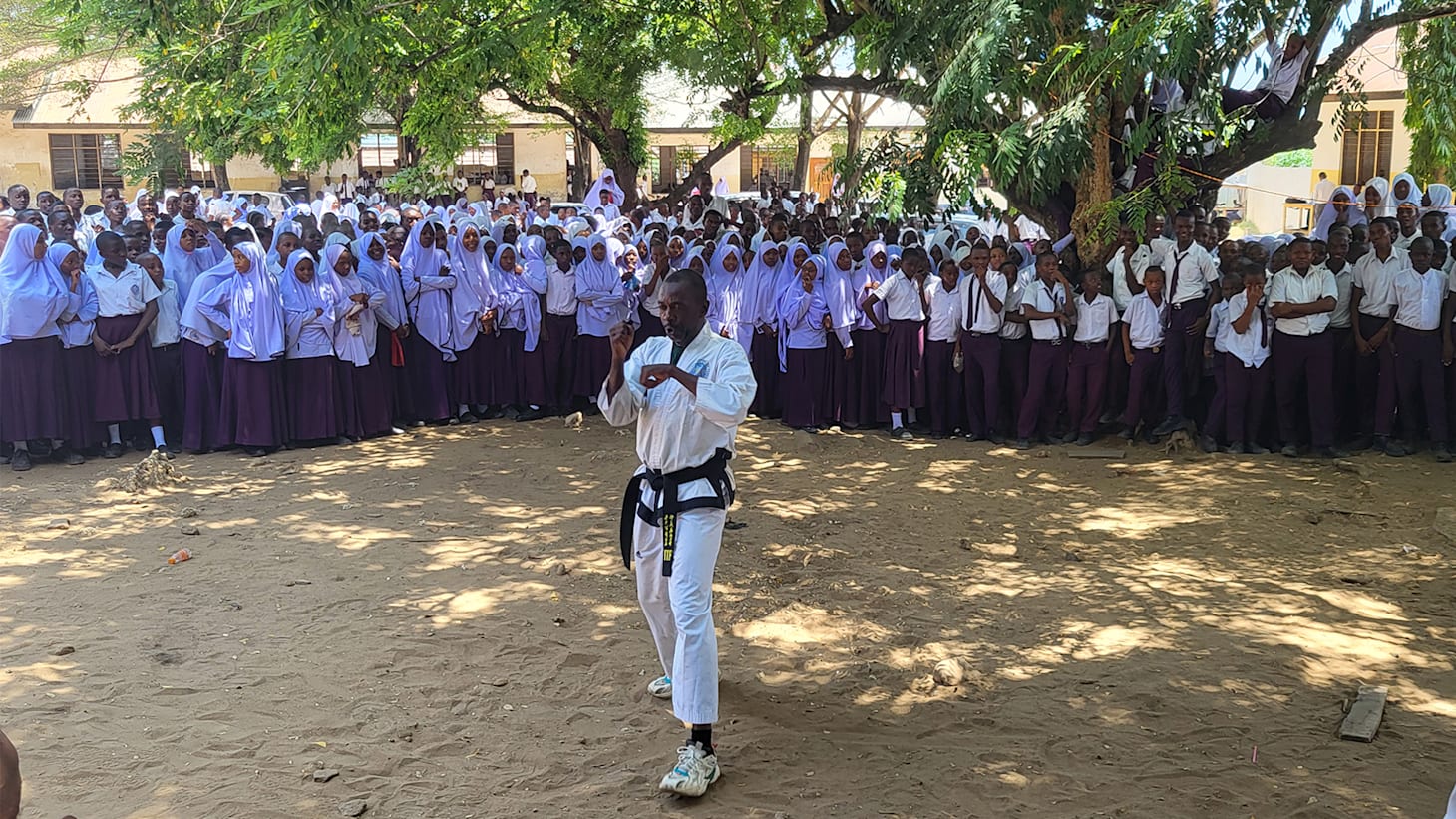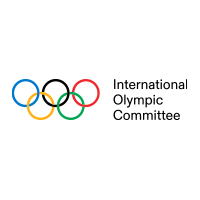07 April 2025 - As the world marks World Health Day, the International Olympic Committee (IOC) is highlighting how projects such as the Sport and Health Cooperation Initiative are using sport to support physical, mental and social health.
Currently running in Tanzania, Ghana, Vietnam and Peru, the Sport and Health Cooperation Initiative aims to integrate physical activity and sport into schools, health facilities, workplaces and communities.
So far, 128,000 people have been reached through programmes improving health and well-being through sport, and 1,000 practitioners have been trained to integrate health promotion, sport and physical activity into their activities. In addition, more than one million people have been reached through public campaigns focused on health education and behaviour change, reinforcing the message that regular physical activity is key to preventing noncommunicable diseases, and supporting healthier lives.
The result of a collective effort between the IOC, the World Health Organization (WHO) and the international health non-governmental organisation PATH, the initiative contributes to advancing the United Nations Sustainable Development Goals (SDGs) through sport.

HEALTHIER LEARNING THROUGH ACTIVE SCHOOLS AND COMMUNITIES IN TANZANIA
In classrooms and clinics across Tanzania, sport is helping people lead healthier, more active lives. Through the Sport and Health Cooperation Initiative, students are learning through movement, and healthcare workers are promoting grassroots sport and physical activity to patients following WHO’s guidelines.
One of the key achievements of the Initiative has been the integration of physical activity into the school day. Drawing on WHO’s toolkit on Promoting physical activity through schools, the programme has trained 464 teachers across 10 schools in Dar es Salaam. Now, more than 35,000 students are benefiting from a new, more active approach to learning.
Each day begins with warm-up exercises after the national anthem, followed by short movement sessions during lessons – from stretching to dance routines that support learning in subjects like mathematics and geography.
This sport programme is very beneficial for us students because it helps us to have quick thinking, believe in ourselves and be active all the time
Masuadi Mahamadu, Student at Nzasa Secondary School.
Teachers are also seeing the benefits. “When their body is active during exercise, their mind also becomes sharp and able to receive what is taught,” explains Ramadhani Seif Jegga, a sports teacher at the school.
Outside school hours, community sports clubs – including taekwondo, football and netball – are also invited to schools to encourage students to remain active and engaged in sport outside the classroom, prompting communities to build stronger habits around well-being.

A COORDINATED APPROACH FOR LASTING CHANGE
A key strength of the Sport and Health Cooperation Initiative has been its ability to foster collaboration across sectors. In Tanzania, the Ministries of Health, Education and Sport have worked together to develop training materials, coordinate programme delivery and align their strategies.
The initiative also strengthens links between the education and health sectors. In collaboration with the Ministry of Health, 95 healthcare workers across 15 health centres in Tanzania have been trained using the WHO’s toolkit on Promoting Physical Activity in Primary Healthcare Settings. These healthcare workers now promote regular physical activity – alongside dietary and lifestyle guidance – to help more than 189,000 patients prevent or manage noncommunicable diseases (NCDs) such as hypertension and diabetes.
With this new intervention from the Sport and Health Cooperation, we had the opportunity to interact with other partners, such as the Ministry of Education and the Ministry of Sport, and have very important learnings on how sport can be integrated into strategies to improve public health, especially working in areas such as prevention of noncommunicable diseases
Dr Amos Mugisha, PATH’s Tanzania Country Director

A GLOBAL MOVEMENT TO PROMOTE HEALTHIER LIVES
The collaboration between the IOC, WHO and PATH will support the Global Action Plan on Physical Activity 2018-2030, which sets out key policy actions applicable to all countries to promote physical activity and achieve the target of a 15% relative reduction in the global prevalence of physical inactivity by 2030.
The initiative is part of the IOC’s broader effort to promote health through sport, anchored in its Olympism365 strategy. Launched as part of Olympic Agenda 2020+5, the Olympism365 strategy aims to strengthen the role of sport as a key enabler of the SDGs. Through this strategy, the IOC is currently supporting over 550 social impact initiatives in 176 countries, improving health, education, livelihoods and inclusion.
A key activation to promote health and physical activity is the Let’s Move campaign, designed in collaboration with WHO. Over the past two years, more than 30 million people have taken part in physical activity through the campaign, with over 1,000 athletes involved.
Fostering healthier communities is one of the topics that will be discussed at the Olympism365 Summit: Sport for a Better World, which will take place from 3 to 5 June 2025 in Lausanne, Switzerland. It will provide a unique networking platform to enhance collaboration, co-investment and joint action.
The event will bring together leaders from across the Olympic Movement, United Nations agencies, development and financing institutions, civil society, for-purpose business and IOC Young Leaders who are working together to advance the UN SDGs through sport. Among them is Dr Tedros Adhanom Ghebreyesus, WHO’s Director General, who will share insights on the contribution of sport and physical activity to preventing NCDs and other global health challenges.

